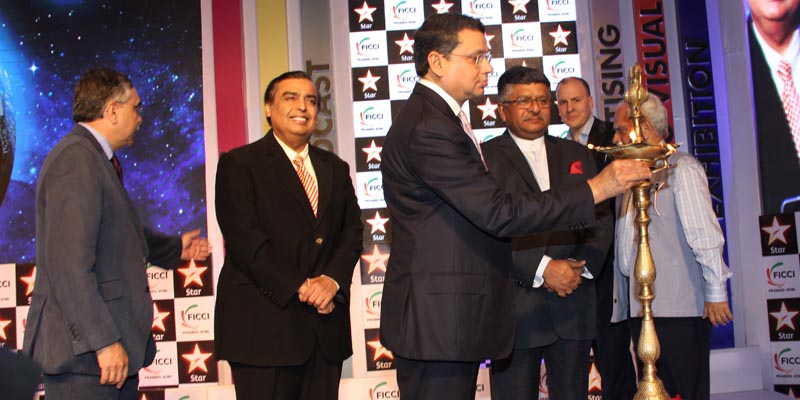
Star India boss Uday Shankar has hammered India’s traditional television sector, saying during the opening of this year’s FICCI Frames convention in Mumbai that the “tectonic shift” in consumer habits was being met with stagnation and denial.
“Even though this change is happening faster than anything we have ever seen, our approach towards it seems to be one of incrementalism,” he told delegates in his address.
“I see an even more obsessive desire to protect the antiquated business models that we have painstakingly built over the years and that technology and the youth are decimating like a bull-dozer rolling over glass bottles,” Shankar said.
“It is pretty clear to me that we are in a battle. In this battle there are only two options... we can either continue living in denial, hide back in our artificial walled gardens, watching as the bricks crumble down one by one or we can arm ourselves with the same weapons that our challengers possess, and venture forth into battle, sometimes even against the same businesses that we have created. Change or Perish,” he added.
At the same time, Shankar said the power of stories was ongoing, overlaid in the new environment with technology.
“Technology and creativity are coming together to enhance the experience literally, almost daily,” he said.
“The new screens have once again highlighted the importance of the story but they have introduced the centrality of the experience at the same time. Design and engineering can no longer be divorced from the story – this is a radical departure from everything that we were taught all these years,” he said, adding that engineers, designers and story tellers were “the three pillars on which we see future media and entertainment companies getting built”.
Shankar called on Minister Ravi Shankar Prasad, and other industry leaders, to “deliver” an environment where “everybody can create value for himself or herself by sheer innovation”.
“Le...
Star India boss Uday Shankar has hammered India’s traditional television sector, saying during the opening of this year’s FICCI Frames convention in Mumbai that the “tectonic shift” in consumer habits was being met with stagnation and denial.
“Even though this change is happening faster than anything we have ever seen, our approach towards it seems to be one of incrementalism,” he told delegates in his address.
“I see an even more obsessive desire to protect the antiquated business models that we have painstakingly built over the years and that technology and the youth are decimating like a bull-dozer rolling over glass bottles,” Shankar said.
“It is pretty clear to me that we are in a battle. In this battle there are only two options... we can either continue living in denial, hide back in our artificial walled gardens, watching as the bricks crumble down one by one or we can arm ourselves with the same weapons that our challengers possess, and venture forth into battle, sometimes even against the same businesses that we have created. Change or Perish,” he added.
At the same time, Shankar said the power of stories was ongoing, overlaid in the new environment with technology.
“Technology and creativity are coming together to enhance the experience literally, almost daily,” he said.
“The new screens have once again highlighted the importance of the story but they have introduced the centrality of the experience at the same time. Design and engineering can no longer be divorced from the story – this is a radical departure from everything that we were taught all these years,” he said, adding that engineers, designers and story tellers were “the three pillars on which we see future media and entertainment companies getting built”.
Shankar called on Minister Ravi Shankar Prasad, and other industry leaders, to “deliver” an environment where “everybody can create value for himself or herself by sheer innovation”.
“Let’s all hope that they do the right thing, for it is in the best interest of this country they all must succeed,” he said.
Published on 4 April 2016































